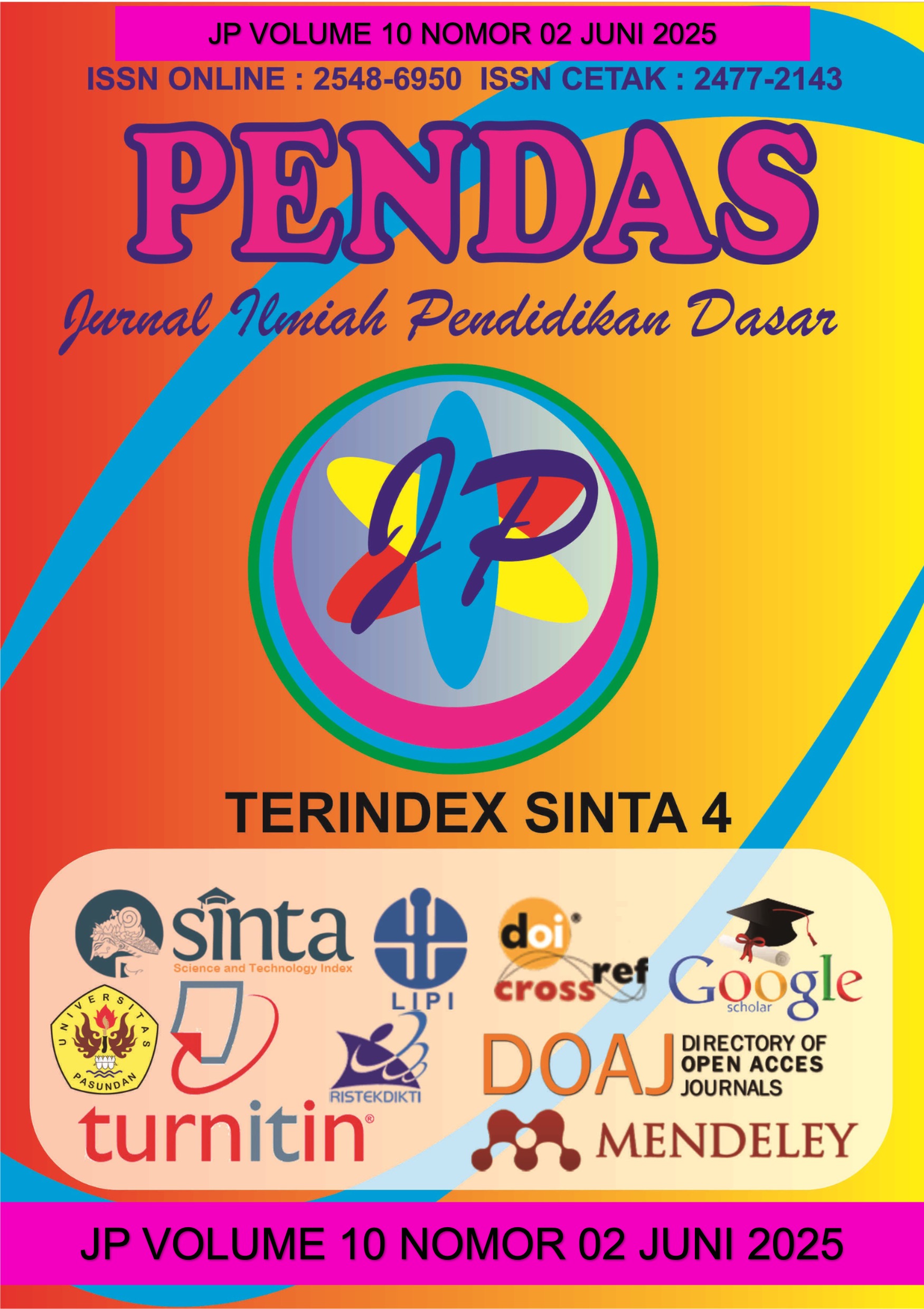FLUENCY FOUND: EMPOWERING PRE-SERVICE ELEMENTARY EDUCATORS WITH ROSETTA STONE FOR ENHANCED SPEAKING IMITATION SKILLS
DOI:
https://doi.org/10.23969/jp.v9i2.16282Keywords:
Speaking imitation skills, language learning, pre-service educators, Rosetta Stone.Abstract
Mastering speaking imitation is vital for pre-service elementary educators who serve as language models. Achieving native-like fluency is challenging due to limited exposure to native speakers. This study investigates Rosetta Stone's efficacy in improving speaking skills for educators, aiming to overcome traditional instructional barriers and enhance language proficiency. This research used a mixed-methods approach, the study integrates quantitative pre/post-tests with qualitative interviews to evaluate Rosetta Stone's impact. Quantitative analysis highlights significant enhancements in speaking imitation skills, showcasing varied participant improvements. The result of the study reveals significant improvements in speaking imitation skills through Rosetta Stone intervention. Participants showed an average 3-4point increase in post-test scores. Qualitative insights highlight heightened engagement, motivation, and perceived effectiveness, demonstrating Rosetta Stone's transformative potential. The findings underscore the importance of integrating technology-enhanced language learning tools into teacher education programs. This integration better equips educators to serve as effective language models and facilitators of language acquisition in classrooms. While existing literature focuses on Rosetta Stone's use in general language learning, recent research has explored its specific application in teacher education. This study contributes to this emerging field by highlighting its potential to enhance language proficiency among pre-service elementary educators.
Downloads
References
Alaa, M., Albakri, I. S. M. A., Singh, C. K. S., Hammed, H., Zaidan, A. A., Zaidan, B. B., Albahri, O. S., Alsalem, M. A., Salih, M. M., Almahdi, E. M., & others. (2019). Assessment and ranking framework for the English skills of pre-service teachers based on fuzzy Delphi and TOPSIS methods. IEEE Access, 7, 126201–126223.
Aryani, M. (2022). The Use of Rosetta Stone in Improving Speaking Skill. Journal of Teaching English and Applied Linguistic.
Bedir, H. (2019). Pre-service ELT teachers’ beliefs and perceptions on 21st century learning and innovation skills (4Cs). Journal of Language and Linguistic Studies, 15(1), 231–246.
Creswell, J. W. (2021). A concise introduction to mixed methods research. SAGE publications.
Elyas, T., & Alghofaili, N. M. (2019). Native English speakers versus non-native English speakers: The impact of language teachers on EFL learner’s English proficiency. English Review: Journal of English Education, 7(2), 27–38.
Hamad, M. M., Metwally, A. A., & Alfaruque, S. Y. (2019). The Impact of Using YouTubes and Audio Tracks Imitation YATI on Improving Speaking Skills of EFL Learners. English Language Teaching, 12(6), 191–198.
Kamola, K. (2023). Strategies for Teaching English to Non-Native Speakers. American Journal of Language, Literacy and Learning in STEM Education (2993-2769), 1(10), 451–453.
Kim, D., & Clayards, M. (2019). Individual differences in the link between perception and production and the mechanisms of phonetic imitation. Language, Cognition and Neuroscience, 34(6), 769–786.
Kusmaryani, W., Musthafa, B., & Purnawarman, P. (2019). The influence of mobile applications on students’ speaking skill and critical thinking in English language learning. Journal of Physics: Conference Series, 1193(1), 12008.
Lai Wah, L., & Hashim, H. (2021). Determining pre-service teachers’ intention of using technology for teaching english as a second language (Esl). Sustainability, 13(14), 7568.
Lee, J. S., Lee, K., & Arifah Drajati, N. (2019). Preservice English teachers’ perceptions of English as an international language in Indonesia and Korea. Journal of Multilingual and Multicultural Development, 40(3), 230–243.
Mahdi, D. A. (2022). Improving speaking and presentation skills through interactive multimedia environment for non-native speakers of English. SAGE Open, 12(1), 21582440221079812.
Miranda, J. A., & Wahyudin, A. Y. (2023). PRE-SERVICE TEACHERS’STRATEGIES IN IMPROVING STUDENTS’SPEAKING SKILLS. Journal of English Language Teaching and Learning, 4(1), 40–47.
Namaziandost, E., Alekasir, S., Dehkordi, E. S., & Tilwani, S. A. (2021). An account of efl learners’ vocabulary learning in a mobile-assisted language environment: The case of rosetta stone application. Call-Ej, 22(1), 80–110.
Namaziandost, E., & Nasri, M. (2019). The impact of social media on EFL learners’ speaking skill: a survey study involving EFL teachers and students. Journal of Applied Linguistics and Language Research, 6(3), 199–215.
Nazarov, R. (2023). USING MODERN TECHNOLOGIES IN TEACHING ENGLISH IN TEACHING ENGLISH. Журнал Иностранных Языков и Лингвистики, 5(5).
Newton, J. M., & Nation, I. S. P. (2020). Teaching ESL/EFL listening and speaking. Routledge.
Nst, A. H., Daulay, S. H., & Dewi, U. (2023). Using Rosetta Stone Application as a Mobile Assited Language Learning (MALL) in EFL: Documentary Study. Scope: Journal of English Language Teaching, 8(1), 8–13.
Rao, P. S. (2019). The importance of speaking skills in English classrooms. Alford Council of International English & Literature Journal (ACIELJ), 2(2), 6–18.
Slimani, N., & Jabal, K. (2023). LANGUAGE LEARNING PLATFORMS: CONNECTING THE DOTS AROUND ROSETTA STONE PLATFORM. European Journal of Education Studies, 10(7).
Slobin, D. I. (2021). Imitation and grammatical development in children. In Psychological Modeling (pp. 166–177). Routledge.
Timans, R., Wouters, P., & Heilbron, J. (2019). Mixed methods research: what it is and what it could be. Theory and Society, 48, 193–216.
.
Yuliani, S., Khulaifiyah, K., & Idayani, A. (2024). The Impact of Rosetta Stone on Students’ Pronunciation for English Subject. Journal of Education and Instruction, 14(1), 313–318.
Downloads
Published
Issue
Section
License
Copyright (c) 2024 Pendas : Jurnal Ilmiah Pendidikan Dasar

This work is licensed under a Creative Commons Attribution 4.0 International License.














































